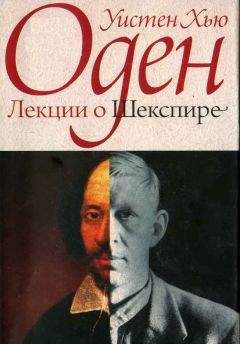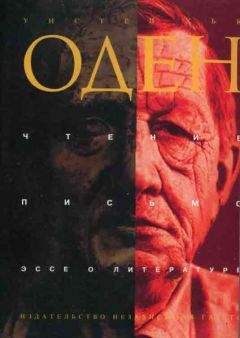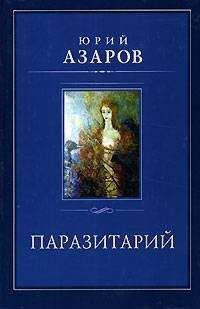1946
A cloudless night like this
Can set the spirit soaring:
After a tiring day
The clockwork spectacle is
Impressive in a slightly boring
Eighteenth-century way.
It soothed adolescence a lot
To meet so shameless a stare;
The things I did could not
Be so shocking as they said
If that would still be there
After the shocked were dead.
Now, unready to die
But already at the stage
When one starts to resent the young,
I am glad those points in the sky
May also be counted among
The creatures of Middle-age.
It's cosier thinking of night
As more an Old People's Home
Than a shed for a faultless machine,
That the red pre-Cambrian light
Is gone like Imperial Rome
Or myself at seventeen.
Yet however much we may like
The stoic manner in which
The classical authors wrote,
Only the young and the rich
Have the nerve or the figure to strike
The lacrimae rerum note.
For the present stalks abroad
Like the past and its wronged again
Whimper and are ignored,
And the truth cannot be hid;
Somebody chose their pain,
What needn't have happened did.
Occurring this very night
By no established rule,
Some event may already have hurled
Its first little No at the right
Of the laws we accept to school
Our post-diluvian world:
But the stars burn on overhead,
Unconscious of final ends,
As I walk home to bed,
Asking what judgement waits
My person, all my friends,
And these United States.
1948
Looking up at the stars, I know quite well
That, for all they care, I can go to hell,
But on earth indifference is the least
We have to dread from man or beast.
How should we like it were stars to burn
With a passion for us we could not return?
If equal affection cannot be,
Let the more loving one be me.
Admirer as I think I am
Of stars that do not give a damn,
I cannot, now I see them, say
I missed one terribly all day.
Were all stars to disappear or die,
I should learn to look at an empty sky
And feel its total dark sublime,
Though this might take me a little time.
1957
She looked over his shoulder
For vines and olive trees,
Marble well-governed cities
And ships upon untamed seas,
But there on the shining metal
His hands had put instead
An artificial wilderness
And a sky like lead.
A plain without a feature, bare and brown,
No blade of grass, no sign of neighborhood,
Nothing to eat and nowhere to sit down,
Yet, congregated on its blankness, stood
An unintelligible multitude,
A million eyes, a million boots in line,
Without expression, waiting for a sign.
Out of the air a voice without a face
Proved by statistics that some cause was just
In tones as dry and level as the place:
No one was cheered and nothing was discussed;
Column by column in a cloud of dust
They marched away enduring a belief
Whose logic brought them, somewhere else, to grief.
She looked over his shoulder
For ritual pieties,
White flower-garlanded heifers,
Libation and sacrifice,
But there on the shining metal
Where the altar should have been,
She saw by his flickering forge-light
Quite another scene.
Barbed wire enclosed an arbitrary spot
Where bored officials lounged (one cracked a joke)
And sentries sweated for the day was hot:
A crowd of ordinary decent folk
Watched from without and neither moved nor spoke
As three pale figures were led forth and bound
To three posts driven upright in the ground.
The mass and majesty of this world, all
That carries weight and always weighs, the same
Lay in the hands of others; they were small
And could not hope for help and no help came:
What their foes liked to do was done, their shame
Was all the worst could wish; they lost their pride
And died as men before their bodies died.
She looked over his shoulder
For athletes at their games,
Men and women in a dance
Moving their sweet limbs
Quick, quick, to music,
But there on the shining shield
His hands had set no dancing-floor
But a weed-choked field.
A ragged urchin, aimless and alone,
Loitered about that vacancy; a bird
Flew up to safety from his well-aimed stone:
That girls are raped, that two boys knife a third,
Were axioms to him, who'd never heard
Of any world where promises were kept,
Or one could weep because another wept.
The thin-lipped armorer,
Hephaestos, hobbled away,
Thetis of the shining breasts
Cried out in dismay
At what the god had wrought
To please her son, the strong
Iron-hearted man-slaying Achilles
Who would not live long.
1952
(In memory of Dietrich Bonhoeffer, martyred at Flossenbürg, April 9, 1945)
He told us we were free to choose
But, children as we were, we thought-
"Paternal Love will only use
Force in the last resort
On those too bumptious to repent."
Accustomed to religious dread,
It never crossed our minds He meant
Exactly what He said.
Perhaps He frowns, perhaps He grieves,
But it seems idle to discuss
If anger or compassion leaves
The bigger bangs to us.
What reverence is rightly paid
To a Divinity so odd
He lets the Adam whom He made
Perform the Acts of God?
It might be jolly if we felt
Awe at this Universal Man
(When kings were local, people knelt);
Some try to, but who can?
The self-observed observing Mind
We meet when we observe at all
Is not alariming or unkind
But utterly banal.
Though instruments at Its command
Make wish and counterwish come true,
It clearly cannot understand
What It can clearly do.
Since the analogies are rot
Our senses based belief upon,
We have no means of learning what
Is really going on,
And must put up with having learned
All proofs or disproofs that we tender
Of His existence are returned
Unopened to the sender.
Now, did He really break the seal
And rise again? We dare not say;
But conscious unbelievers feel
Quite sure of Judgement Day.
Meanwhile, a silence on the cross,
As dead as we shall ever be,
Speaks of some total gain or loss,
And you and I are free
To guess from the insulted face
Just what Appearances He saves
By suffering in a public place
A death reserved for slaves.
1958
Thanksgiving for a Habitat
Nobody I know would like to be buried
with a silver cocktail-shaker,
a transistor radio and a strangled
daily help, or keep his word because
of a great-great-grandmother who got laid
by a sacred beast. Only a press lord
could have built San Simeon: no unearned income
can buy us back the gait and gestures
to manage a baroque staircase, or the art
of believing footmen don't hear
human speech. (In adulterine castles
our half-strong might hang their jackets
while mending their lethal bicycle-chains:
luckily, there are not enough
crags to go round.) Still, Hetty Pegler's Tump
is worth a visit, so is Schönbrunn,
to look at someone's idea of the body
that should have been his, as the flesh
Mum formulated shouldn't: that whatever
he does or feels in the mood for,
stock-taking, horse-play, worship, making love,
he stays the same shape, disgraces
a Royal I. To be over-admired is not
good enough: although a fine figure
is rare in either sex, others like it
have existed before. One may
be a Proustian snob or a sound Jacksonian
democrat, but which of us wants
to be touched inadvertently, even
by his beloved? We know all about graphs
and Darwin, enormous rooms no longer
superhumanise, but earnest
city-planners are mistaken: a pen
for a rational animal
is no fitting habitat for Adam's
sovereign clone. I, a transplant
from overseas, at last am dominant
over three acres and a blooming
conurbation of country lives, few of whom
I shall ever meet, and with fewer
converse. Linnaeus recoiled from the Amphibia
as a naked gruesome rabble,
Arachnids give me the shudders, but fools
who deface their emblem of guilt
are germane to Hitler: the race of spiders
shall be allowed their webs. I should like
to be to my water-brethren as a spell
of fine weather: Many are stupid,
and some, maybe, are heartless, but who is not
vulnerable, easy to scare,
and jealous of his privacy? (I am glad
the blackbird, for instance, cannot
tell if I'm talking English, German or
just typewriting: that what he utters
I may enjoy as an alien rigmarole.) I ought
to outlast the limber dragonflies
as the muscle-bound firs are certainly
going to outlast me: I shall not end
down any oesophagus, though I may succumb
to a filter-passing predator,
shall, anyhow, stop eating, surrender my smidge
of nitrogen to the World Fund
with a drawn-out Oh (unless at the nod
of some jittery commander
I be translated in a nano-second
to a c.c. of poisonous nothing
in a giga-death). Should conventional
blunderbuss war and its routiers
invest my bailiwick, I shall of course
assume the submissive posture:
but men are not wolves and it probably
won't help. Territory, status,
and love, sing all the birds, are what matter:
what I dared not hope or fight for
is, in my fifties, mine, a toft-and-croft
where I needn't, ever, be at home to
those I am not at home with, not a cradle,
a magic Eden without clocks,
and not a windowless grave, but a place
I may go both in and out of.
1962




